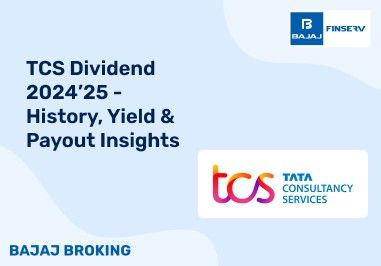BAJAJ BROKING
Tankup Engineers IPO is Open!
Open a Free Demat Account
Trade Now, Pay Later with up to 4x
Track Market Movers Instantly
Types of GST in India
From paying the parking charges to making an online purchase on our favourite e-commerce platform, we regularly make payments and collect receipts and invoices. But we seldom check what portion of the total amount forms a tax component.
A close lookup on an invoice reveals that a certain percentage of the amount is paid towards GST. But it’s always mentioned either as IGST or a combination of CGST and SGST or UTGST.
In this blog, we will brief you about all the types of GST in India, and the scenarios under which they are applicable. So without further ado, let’s get straight to it.
Additional Read: LTIMindtree Disputes ₹155.7 Crore Demand from Maharashtra GST Dept
Highlights of the Blog
- Types of GST<
- Application of Different Types of GST<
- Conclusion<
Types of GST
First things first. Let’s understand the four types of GST that are currently levied in India.
- 1. IGST
IGST stands for Integrated Goods and Service Tax. When goods or services are supplied between two different states or union territories, IGST is applied. IGST is also applicable in the case of import and export. However, exports come under the zero-rated category. IGST is levied by the Central Government but shared by both Central and State governments.
- 2. CGST
CGST stands for Central Goods and Service Tax. It is applicable when goods or services are supplied within the same state or union territory. As the name suggests, CGST is the central Government’s share of tax on the intrastate supply. The rate is equivalent to the rate of SGST, which we will explore next.
- 3. SGST
State Goods and Service Tax (SGST), is the State Government’s share of indirect tax on intrastate supply of goods and services. The rate of SGST is the same as the rate of CGST applicable on the value of supply, and both are applied levied together.
- 4. UTGST
Union Territory Goods and Service Tax (UTGST) is levied by Union Territories on intra-union territory supply of goods and services. It is similar to the levy of SGST by the state Government. It is levied together with CGST at an equivalent rate. Union Territories include Delhi, Chandigarh, Puducherry, Dadra Nagar Haveli and Daman and Diu, Ladakh, J&K, Andaman and Nicobar Islands, and Lakshadweep Islands.
Application of Different Types of GST
Let’s understand the application of different types of GST with the help of an example.
Assume that you reside in Pune and purchase goods worth ₹20,000 from a seller in Chennai. In this case, there is an interstate supply of goods between Maharashtra and Tamil Nadu.
If the rate of GST is 18%, then ₹3,600 will be charged in the invoice as IGST. This whole amount will be levied by the Central Government.
Now, rather than buying from a seller in Chennai, if you bought the goods locally from a seller in Pune, then this will be considered as an intrastate supply of goods.
In this case, the GST rate of 18% will be divided into two - CGST 9% and SGST 9%. Thus, ₹1,800 will go to the credit of the Central Government and the other ₹1,800 to the State Government.
If the seller is from any of the above-mentioned Union Territories, then SGST will be replaced with UTGST and the rest of the treatment remains similar.
To Sum Up
GST is still a relatively new tax concept in India and many need clarity when it comes to understanding its types. Therefore, it is important to know all the types of GST applicable and also be aware of items that are exempt from the levy of GST. Such products include raw fruits and vegetables, milk, meat, fish, and other miscellaneous items like newspapers, books, and vaccines.
Disclaimer: Investments in the securities market are subject to market risk, read all related documents carefully before investing.
This content is for educational purposes only. Securities quoted are exemplary and not recommendatory.
For All Disclaimers Click Here: https://bit.ly/3Tcsfuc
Share this article:
Read More Blogs
Disclaimer :
The information on this website is provided on "AS IS" basis. Bajaj Broking (BFSL) does not warrant the accuracy of the information given herein, either expressly or impliedly, for any particular purpose and expressly disclaims any warranties of merchantability or suitability for any particular purpose. While BFSL strives to ensure accuracy, it does not guarantee the completeness, reliability, or timeliness of the information. Users are advised to independently verify details and stay updated with any changes.
The information provided on this website is for general informational purposes only and is subject to change without prior notice. BFSL shall not be responsible for any consequences arising from reliance on the information provided herein and shall not be held responsible for all or any actions that may subsequently result in any loss, damage and or liability. Interest rates, fees, and charges etc., are revised from time to time, for the latest details please refer to our Pricing page.
Neither the information, nor any opinion contained in this website constitutes a solicitation or offer by BFSL or its affiliates to buy or sell any securities, futures, options or other financial instruments or provide any investment advice or service.
BFSL is acting as distributor for non-broking products/ services such as IPO, Mutual Fund, Insurance, PMS, and NPS. These are not Exchange Traded Products. For more details on risk factors, terms and conditions please read the sales brochure carefully before investing.
Investments in the securities market are subject to market risk, read all related documents carefully before investing. This content is for educational purposes only. Securities quoted are exemplary and not recommendatory.
For more disclaimer, check here : https://www.bajajbroking.in/disclaimer
Our Secure Trading Platforms
Level up your stock market experience: Download the Bajaj Broking App for effortless investing and trading













